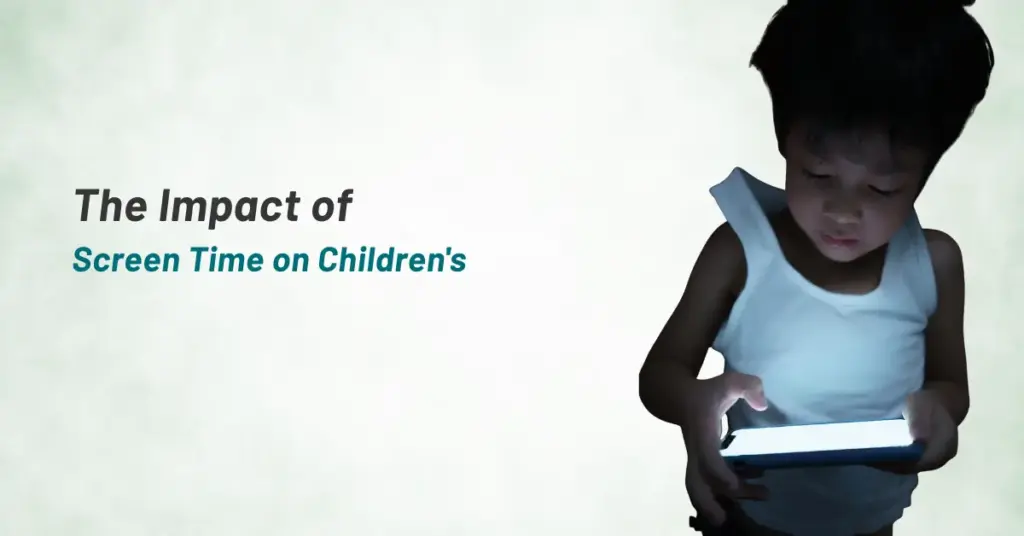In today’s digital age, children are increasingly exposed to screens from an early age, whether it’s through smartphones, tablets, computers, or television. While technology offers many benefits, excessive screen time can have significant effects on children’s development and mental health. In this blog post, we’ll explore the impact of screen time on children and discuss strategies for promoting healthy screen habits.
Cognitive Development
Excessive screen time has been linked to delays in cognitive development in young children. Excessive use of screens can interfere with activities that are critical for brain development, such as physical play, social interaction, and hands-on learning experiences. This can impact attention span, problem-solving skills, and language development.
Physical Health
Extended screen time often leads to a sedentary lifestyle, contributing to physical health issues such as obesity, poor posture, and vision problems. Spending too much time in front of screens can also disrupt sleep patterns, leading to sleep disturbances and fatigue. Encouraging children to engage in outdoor activities and physical play can help counteract the negative effects of excessive screen time on physical health.
Mental Health
There is growing evidence linking excessive screen time to mental health issues such as anxiety, depression, and behavioral problems in children. Excessive exposure to screens, particularly content that is violent, inappropriate, or stressful, can negatively impact children’s emotional well-being and psychological development. It’s essential for parents to monitor and limit screen time to reduce the risk of mental health issues and promote positive coping strategies.
Strategies for Promoting Healthy Screen Habits
- Set limits on screen time: Establish clear rules and boundaries around screen time, including designated screen-free times and areas in the home.
- Encourage alternative activities: Encourage children to engage in a variety of activities beyond screens, such as reading, outdoor play, creative arts, and hobbies.
- Be a role model: Limit your own screen time and demonstrate healthy screen habits to your children. Set a positive example by prioritizing face-to-face interactions and quality time together.
- Monitor content: Be aware of the content your children are accessing online and ensure it is age-appropriate and suitable for their developmental stage.
- Foster open communication: Talk to your children about the importance of balanced screen use and the potential impact of excessive screen time on their health and well-being.
Conclusion
While screens have become an integral part of modern life, it’s crucial to recognize the potential impact of excessive screen time on children’s development and mental health. By promoting healthy screen habits and encouraging a balanced approach to technology use, parents can help mitigate the negative effects of screens and support their children’s overall health and well-being. Together, let’s strive to create a healthy digital environment where children can thrive and reach their full potential.













